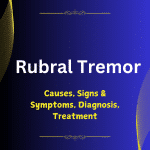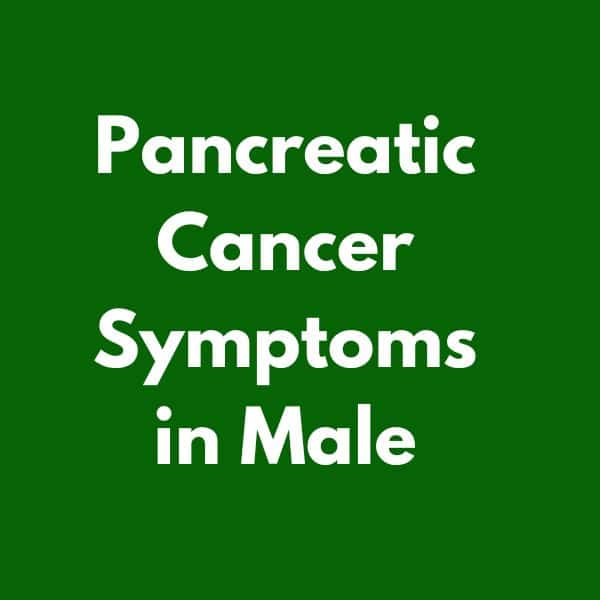Pancreatic Cancer Symptoms in Male
Pancreatic cancer is a type of cancer that starts in the pancreas, an organ that lies behind the stomach and produces hormones and digestive juices. Pancreatic cancer is one of the most deadly cancers, as it is often diagnosed at a late stage when it has spread to other organs. According to the American Cancer Society, about 60,430 people will be diagnosed with pancreatic cancer and about 48,220 people will die from it in 2023.
Pancreatic cancer can cause different symptoms depending on where it is located in the pancreas and how it affects the body. In this blog post, we will discuss some of the common symptoms of pancreatic cancer in men and when to see a doctor.
Symptoms of Pancreatic Cancer in the Head of the Pancreas
The head of the pancreas is the part that is closest to the duodenum (the first part of the small intestine). About 70% of pancreatic cancers start in the head of the pancreas. These cancers can block the bile duct that carries bile from the liver and gallbladder to the duodenum. Bile helps digest fats and gives stool its brown color. When bile is blocked, it can cause:
- Jaundice: This is a yellowing of the skin and eyes due to the buildup of bilirubin, a pigment in bile. Jaundice can also cause itching, dark urine, and pale stools.
- Abdominal pain: This is a dull or sharp pain in the upper abdomen that may radiate to the back. The pain may come and go or be constant. It may get worse after eating or lying down.
- Weight loss: This is due to loss of appetite, nausea, vomiting, or malabsorption of nutrients from food.
- Diabetes: This is a condition where the blood sugar level is too high. Pancreatic cancer can damage the cells that produce insulin, a hormone that regulates blood sugar. Diabetes can cause symptoms such as increased thirst, urination, hunger, fatigue, and blurred vision.
Symptoms of Pancreatic Cancer in the Body or Tail of the Pancreas
The body and tail of the pancreas are the parts that are farther away from the duodenum. About 30% of pancreatic cancers start in these parts. These cancers are less likely to cause jaundice or diabetes, but they can press on other organs or nerves and cause:
- Abdominal pain: This is similar to the pain caused by cancers in the head of the pancreas, but it may be more severe or persistent.
- Weight loss: This is similar to the weight loss caused by cancers in the head of the pancreas, but it may be more rapid or dramatic.
- Ascites: This is a buildup of fluid in the abdomen that can cause swelling, discomfort, and difficulty breathing.
- Splenomegaly: This is an enlargement of the spleen, an organ that filters blood and helps fight infections. Splenomegaly can cause pain in the upper left abdomen or under the left ribs.
Symptoms of Rare Types of Pancreatic Cancer
Some rare types of pancreatic cancer start from the cells that make hormones in the pancreas. These are called neuroendocrine tumors or islet cell tumors. They account for less than 5% of all pancreatic cancers. These tumors can produce excess hormones that can cause various symptoms depending on which hormone is involved. Some examples are:
- Insulinomas: These tumors produce too much insulin, which lowers blood sugar. This can cause symptoms such as sweating, shaking, confusion, dizziness, hunger, and fainting.
- Glucagonomas: These tumors produce too much glucagon, which raises blood sugar. This can cause symptoms such as thirst, urination, weight loss, skin rash, and diarrhea.
- Gastrinomas: These tumors produce too much gastrin, which stimulates stomach acid production. This can cause symptoms such as abdominal pain, ulcers, heartburn, and weight loss.
- Somatostatinomas: These tumors produce too much somatostatin, which inhibits other hormones. This can cause symptoms such as diarrhea, weight loss, abdominal pain, and fatty stools.
When to See a Doctor
If you have any symptoms that worry you or persist for more than a few weeks, you should see your doctor as soon as possible. Many other conditions can cause similar symptoms to pancreatic cancer, so your doctor will perform a physical exam and order some tests to find out the cause. Some tests that may be done include:
- Blood tests: These can check for signs of infection, inflammation, anemia, liver function, kidney function, blood sugar level, and tumor markers (substances produced by cancer cells).
- Imaging tests: These can show pictures of your pancreas and other organs. Examples include ultrasound, CT scan (computed tomography), MRI (magnetic resonance imaging), PET scan (positron emission tomography), and endoscopic ultrasound (EUS).
- Biopsy: This is a procedure where a small sample of tissue is taken from your pancreas or another organ and examined under a microscope for signs of cancer.
Treatment of pancreatic cancer
Treatment for pancreatic cancer depends on the stage of the cancer and the patient’s overall health. Treatment options may include:
- Surgery
- Chemotherapy
- Radiation therapy
- Targeted therapy
- Immunotherapy
The earlier pancreatic cancer is diagnosed and treated, the better the chances of survival. However, there is no screening test for pancreatic cancer for people who do not have any symptoms or risk factors. Some risk factors for pancreatic cancer include:
- Age: The risk increases with age; most people who develop pancreatic cancer are over 65 years old.
- Smoking: Smoking increases the risk by two to three times; quitting smoking can lower the risk.
- Obesity: Being overweight or obese increases the risk by 20%; losing weight can lower the risk.
- Family history: Having a close relative with pancreatic cancer increases the risk by two to three times; genetic testing may be recommended for some people with a strong family history.
- Chronic pancreatitis: Having long-term inflammation of the pancreas increases the risk by three to six times; treating pancreatitis can lower the risk.
- Diabetes: Having diabetes increases the risk by two times; controlling blood sugar can lower the risk.
Pancreatic cancer is a serious disease that requires prompt diagnosis and treatment. If you have any concerns about your health or notice any changes in your body that are unusual for you, do not hesitate to contact your doctor. Early detection and intervention can make a difference in your outcome and quality of life.
Conclusion
Pancreatic cancer is a serious disease that affects the pancreas, a gland that produces digestive enzymes and hormones. Pancreatic cancer is the fourth leading cause of cancer death in men. Early detection and treatment are important for improving survival rates. If you have any of the symptoms of pancreatic cancer, it is important to see a doctor right away.
Additional information
- The American Cancer Society has more information about pancreatic cancer symptoms and diagnosis.
- The National Cancer Institute has more information about pancreatic cancer treatment.
- The Pancreatic Cancer Action Network has more information about pancreatic cancer support and resources.
FAQs
What are the most common symptoms of pancreatic cancer in males?
The most common symptoms of pancreatic cancer in men are jaundice, pain in the upper abdomen, unexplained weight loss, fatigue, nausea and vomiting, diarrhea, dark urine, light-colored stool, itchy skin, and new-onset diabetes.
How is pancreatic cancer diagnosed?
Pancreatic cancer is often difficult to diagnose in the early stages because it often does not cause any symptoms. If you have any of the symptoms of pancreatic cancer, it is important to see a doctor right away. Diagnosis of pancreatic cancer is usually made with a combination of tests, including blood tests, imaging tests, and biopsy.
What are the treatment options for pancreatic cancer?
Treatment for pancreatic cancer depends on the stage of the cancer and the patient’s overall health. Treatment options may include surgery, chemotherapy, radiation therapy, targeted therapy, and immunotherapy.
What is the prognosis for pancreatic cancer?
The prognosis for pancreatic cancer is poor, especially if the cancer is diagnosed in the later stages. The five-year survival rate for pancreatic cancer is about 9%.
What can I do to reduce my risk of developing pancreatic cancer?
There is no sure way to prevent pancreatic cancer, but there are some things you can do to reduce your risk, such as:
- Not smoking
- Eating a healthy diet
- Exercising regularly
- Maintaining a healthy weight
- Getting regular checkups
Where can I get more information about pancreatic cancer?
There are many resources available for people who are concerned about pancreatic cancer. Here are a few:
- The American Cancer Society
- The National Cancer Institute
- The Pancreatic Cancer Action Network
Latest Posts
- Narcissistic Personality Disorder in 2025: Unveiling the Hidden Struggles and Empowering Recovery

- Conquering Rubral Tremor: Unveiling Effective Treatments in 2025

- Claude Syndrome Explained: Uncover the Rare Neurological Disorder Affecting Lives in 2025

- How to Break Social Media Addiction in 2024: Proven Methods for Lasting Freedom

- What is Phubbing? The Surprising Impact of This 2024 Relationship Killer

